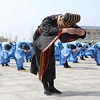Commercial publishing system ‘may never deliver full open access’
Some of Europe’s biggest research universities have warned that the current commercial academic publishing system may not be able to deliver fully open-access research, and that institutions themselves may have to set up rival platforms instead.









